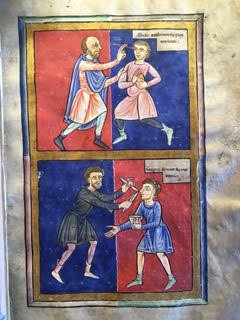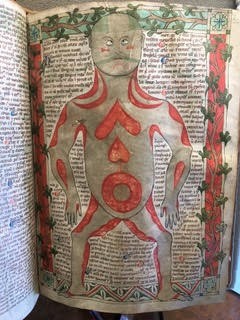Today I am talking with Rebecca Golding, a doctoral candidate in medieval art. I asked her a few questions about her career path, goals, and experience at U of T.
Question: Please tell me a little about yourself, such as your previous education and career path.
Answer: I was a math and philosophy student, and somehow got a job on Wall Street as a financial analyst for a company that was later swallowed up. It was definitely not for me. I then left and went to France for a year. I studied the language at a university in Aix-en-Provence and tried to figure out what I wanted to do with my life. I ended up applying to law school, and I thought seriously about criminal law. I interned one summer with the US Attorney’s office in New York—we were prosecuting the World Wrestling Federation (I met Hulk Hogan)! I ended up practicing corporate law and worked in New York for a while.
My husband got transferred to California, so we moved there (it was just supposed to be temporary so I kept my job in New York on hold). I decided to work for non-profit organizations and I did a number of jobs. Some were volunteer and some were paid, but all involved either education or the environment. I got pregnant and when we moved back to the East Coast, I decided to stay with volunteer organizations, working part time while my boys were small. A few years later, my husband got transferred again, this time to Toronto, and I got an administrative job with the botanical gardens (I’m an avid gardener). Later on, I decided to go back to school.

Question: Why did you decide to go to graduate school? Why did you choose U of T for your doctoral program?
Answer: I had taken an art history class in the 2nd semester of my 3rd year in university and loved it; I thought about changing majors, but the department said that I would have to do an extra year of school. At that point I just didn’t know what I wanted to do with my life, but returning to learn art history was always in the back of my mind. While in New York, I discovered the Cloisters museum (my favorite) and when my children were young I had time to read history plus plenty of other books. The choice to go back to graduate school was easy, it was just about finding the right time..
I chose the University of Toronto because we lived here and because it has a fantastic medieval program. I was very lucky to have been accepted. I started as a non-degree student and took courses for two years. I applied for the masters degree here and was accepted as a part-time student. I then applied for the PhD program.
Question: What program are you studying? Why did you pick this area to research?
Answer: I am studying medieval art and I focus on manuscripts, in particular those with some of the earliest surviving medical illustrations. The ones I’m working on are from the 12th century. It’s an interesting time because lots of scientific texts were coming into the West from the Islamic world and Byzantium, and western scholars (all clerical) were trying to incorporate this information into the Christian worldview.
I chose Medieval art for so many reasons – going back to an early interest developed in my first semester of my undergraduate years. For some reason, I decided it would be an okay thing to take an 8:00 am history class that met 3 times a week. The professor was a medieval historian and he was so good that I went to every class (which is saying something)! Plus the medieval professors here at UofT are truly outstanding – great teachers, mentors, and scholars.
I picked my research topic because it incorporates many of my interests outside of art: medicine was primarily herbal in the Middle Ages and many of the texts I am reading are philosophical.
Question: What’s your experience like as a TA?
Answer: I really love working with students—it’s very rewarding. One thing I didn’t realize is just how much time it takes. Most TAs give much more time than they are paid for-- you want to help the students and we’re in this because we love teaching and the subject matter. The real struggle is balancing our time because writing a dissertation also takes so much time.

Question: Do you have advice you’d like to give for those wishing to pursue Art history doctorate?
Answer: Medieval art is different than later art. Most of the time we don’t know the artists, we don’t tend to focus on technique, and most works have a devotional component. If you’re interested in medieval, you should really read a lot of medieval history, philosophy, and theology. I would also encourage people to learn Latin, Greek, or Arabic.
I would also suggest, and this goes for all art history subjects, to take language classes during your undergraduate years, in particular German, French, Italian, or Spanish. Even if you are looking at American art, you’ll still need some French and German to read secondary sources. Plus, it is likely that you will travel to see your art and to participate in conferences. So languages are not only helpful for your scholarship but also to travel and interact with people. I spent three months in England and Germany last summer and I still wish that my German was better!
Students should also know that finding a tenure-track teaching job or curatorial position is very difficult. There are, of course, other opportunities besides academia and museums and universities are getting better at helping PhD students find alternative careers. I would strongly suggest working for a couple of years after your get your undergraduate degree. Not only will it give you some needed rest and perspective, but also you can gain other skills that could help with your post-graduate degree job search. As for me, I’m not so sure about my end goal. I would love to teach even on an adjunct basis, but I’m also considering administrative work in museums, historical sites and universities.


